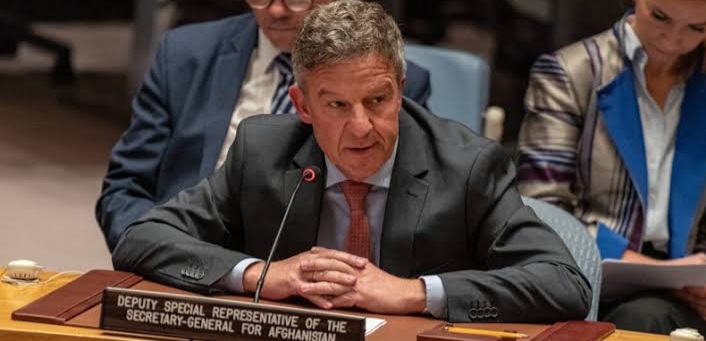By Oyintari Ben
As the Islamist rule continues to show no signs of allowing females to attend school and its ties to Al Qaeda remain in doubt, the world is growing impatient with the Taliban, a UN representative addressed the Security Council on Tuesday.
Since the Taliban seized power last year, there have been some positive achievements. However, Markus Potzel, the United Nations deputy representative in Afghanistan, told the council that “they have been too few and too delayed and are overwhelmed by the downsides.”
“I am afraid that patience is running out by many in the international community regarding a strategy of engagement with Afghanistan’s Taliban,” he said.
Potzel remarked as UN Secretary-General Antonio Guterres noted that the Taliban had been “ambiguous as to the extent to which they would like to engage externally, without formal recognition and dependent on being in conformity with their interpretation of the sharia.”
The US execution of Al Qaeda chief Ayman al-Zawahiri by a drone attack in Kabul this year “brought to the fore the continuing linkages between the terrorist group and the Taliban, which would be antithetical to the latter’s counter-terrorism pledges,” Guterres further noted in his quarterly report released on Tuesday.
In addition, the report criticized the “serious limits” that are still placed on the rights of women and girls, such as the prohibition on secondary education.
The ten non-permanent members of the Security Council and the five nations that will take seats on the council the following year urged the Taliban to “immediately rescind this decision” in a unified statement focused on girls’ education. They said that “the international community has not forgotten Afghan women and girls and will not do so.”




































